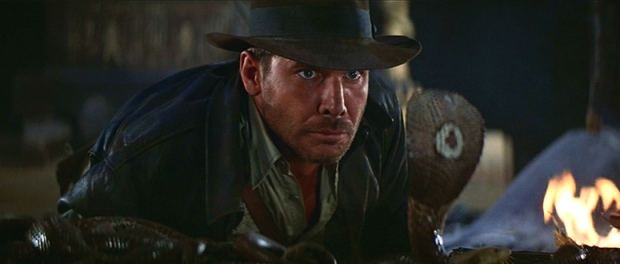Woo! Even though it’s day 138, this is post 100! I used only the finest graphical arts programs to generate appropriate banners for this momentous occasion.
…
…
…

Woo! Post 100!
Of course, that means somehow I missed 38 days of proper updates. Woo…
I’ve gotten to the point where I prefer doing my blog to doing work. That doesn’t seem to be too much of a surprise. Work is stressing me out. Plus I went to urgent care today for some weird issue only to pay them $50 and get billed later for some X-Rays for them to tell me that it’s [best guess] and it’ll go away on its own. Whee.
Anyway, it’s taking me like 2 hours to write this post because I’m distracted.
Let’s get on with…
Numbers 21
Oh goodness, it’s long.
But! After having read it, it’s not too bad. Full of Israeli military conquests. A little odd/appropriate considering recent real-world news.
However! The part that I found interesting about this chapter has to do with serpents!
As some of you may know, I sort of have a thing about snakes.
When I had my first intense religious experience, serpent imagery was involved. I still think about it to this day. So in this chapter, when the people of Israel speak out against God, having just made a vow and been granted military victory over the entire land of Canaan (which seriously took like 3 verses, talk about anticlimactic), they speak out against God and he plagues them with “fiery serpents” (NKJV) or “poisonous serpents” (Jehovah’s Witness New World Translation).
The people start getting bitten by these snakes and they begin to die. So the people take some initiative and apologize for all this and ask Moses to intervene. God tells Moses to make an image of the serpents and “set it on a pole” (Numbers 21:8), that those who look upon it will not die from their snakebites. So he does, and the people do.
Now I don’t know if this just seemed really obvious or what, but the serpent on the pole is totally Jesus, you guys. Guys. Guys. Seriously.
So get this. God sends the serpents to punish the people, and depending on your doctrine, sin is effectively punishment, is it not? So the serpents are representative of sin, but where does sin come from? People. Without people there is no sin. So we have a whole “man’s inhumanity to man” thing going on.
Or alternatively, sin is not technically punishment but just the direct consequence of disobedience to God. In which case, snakes are the direct result of disobedience to God.
Either way, so the snakes are like the pain caused by sin, and sin is caused by people, and so the snakes are sort of like sinners and punishment rolled up into one scaly yet smooth metaphor. But! Moses makes a perfect image of one of these snakes (eh? eh??) and puts in on a pole (EH?!) and the people look to it (EHHHH?!?!) and are saved. Get it? Get it?
I thought this was interesting especially since the Jehovah’s Witnesses contend that Jesus was not hung on a cross but hung on a large pole (EH?!?!?!?!) called a “torture stake.” But yeah, these people look up to an image that is representative of God’s grace and are saved. They do not pray to the image, though, and this is an interesting point. That would be a sin.
I think this is why Protestants pray to God in Jesus’ name. Jesus is the image, the manifestation, of God’s grace. But all the praise and glory is still given to God. I think Jesus would have it no other way, since even He submitted to the will of the Father, even though they were sort of the same “Being” or “essence” or what-have-you.
Insert obligatory “God is in Christ and Christ is in us therefore God is in us therefore we are with God in some spiritual unity but yet created separately from Him physically to be forever distant so that we would seek Him but also be seeking the perfected version of ourselves which is in Him and only He can give us” thing that I do.
Anyway, as far as the rest of the chapter goes, like I said, Israel cuts a bloody swath across the Middle East and wrecks everybody’s s***.
Then they kill some king named Og. Really? This guy’s got like, a caveman name.
Anyway, peace be upon you!


